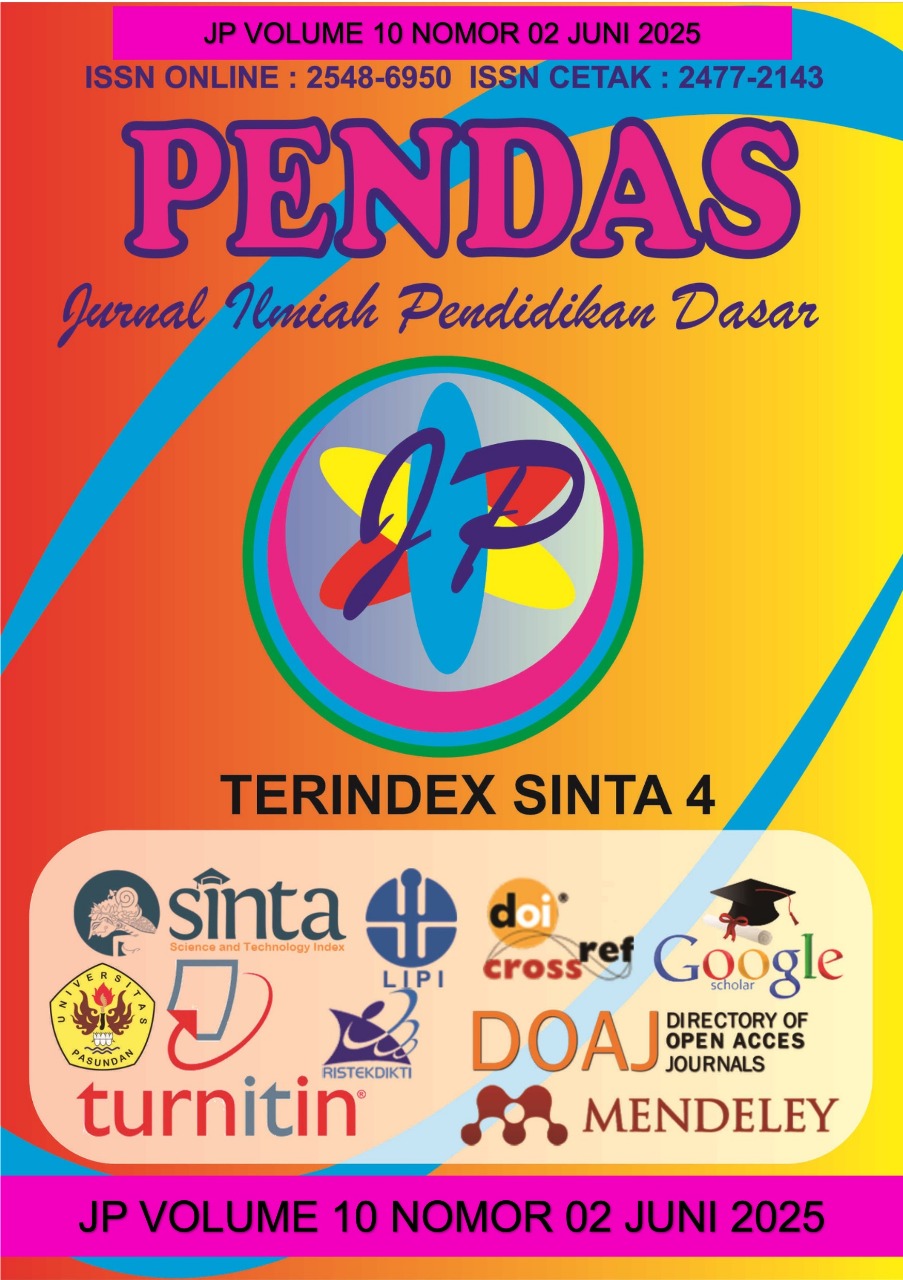IMPLEMENTASI PROGRAM SARI BUAH (SATU HARI BERGERAK UNTUK ANAK INDONESIA HEBAT) DALAM MENGEMBANGKAN KESEHATAN EMOSIONAL SISWA SEKOLAH DASAR
Keywords:
emotional health, SARI BUAH Program, elementary school students, implementationAbstract
This study examines the implementation of the SARI BUAH (One Day Moving for Great Indonesian Children) program in developing the emotional health of elementary school students. The problem addressed is the suboptimal emotional health of students, which impacts their ability to manage emotions and engage in social interactions. The purpose of this study is to comprehensively describe how the SARI BUAH program is implemented and to analyze its impact on the development of students' emotional health. This research employs a qualitative approach with a case study method. Data collection was conducted through participant observation, in-depth interviews with teachers, students, and parents, as well as analysis of program-related documents. The research subjects were elementary school students actively participating in the SARI BUAH program at an elementary school in Malang. The results show that the SARI BUAH program is implemented through various structured activities such as self-development workshops, collaborative games, and emotional sharing sessions, all designed to facilitate self-understanding and emotion regulation. This program significantly improved students' emotional health, characterized by enhanced ability to recognize and express emotions, build positive peer relationships, and adaptively overcome challenges. The SARI BUAH program makes a positive contribution to creating a learning environment that supports students' holistic emotional development.
Downloads
References
Brunwasser, S. M., Gillham, J. E., & Kim, E. S. (2009). A meta-analytic review of the Penn Resiliency Program. Clinical Psychology Review, 29(2), 219–232.
Collaborative for Academic, Social, and Emotional Learning (CASEL). (2019). What is SEL? https://casel.org/what-is-sel/
Durlak, J. A., Weissberg, R. P., Dymnicki, A. B., Taylor, R. D., & Schellinger, K. B. (2011). The impact of enhancing students’ social and emotional learning: A meta-analysis of school-based universal interventions. Child Development, 82(1), 405–432.
Erikson, E. H. (1968). Identity: Youth and Crisis. W. W. Norton & Company.
Fitriyani, H. (2020). Literasi emosional guru dalam pendidikan dasar. Jurnal Pendidikan Karakter, 10(1), 15–27.
Gardner, H. (1983). Frames of Mind: The Theory of Multiple Intelligences. Basic Books.
Goleman, D. (2006). Emotional Intelligence: Why It Can Matter More Than IQ. Bantam Books.
Hurlock, E. B. (2016). Psikologi Perkembangan: Suatu Pendekatan Sepanjang Rentang Kehidupan (5th ed.). Erlangga.
KPAI. (2020). Laporan Tahunan KPAI 2020: Perlindungan Anak di Masa Pandemi.
Mahar, M. T., Murphy, S. K., Rowe, D. A., Golden, J., Shields, A. T., & Raedeke, T. D. (2006). Effects of a classroom-based program on physical activity and on-task behavior. Medicine & Science in Sports & Exercise, 38(12), 2086–2094.
Miles, M. B., & Huberman, A. M. (1994). Qualitative Data Analysis: An Expanded Sourcebook (2nd ed.). Sage Publications.
Santrock, J. W. (2017). Life-span Development (15th ed.). McGraw-Hill Education.
WHO. (2021). Mental health and psychosocial well-being among children and adolescents. https://www.who.int/
Yusuf, A. M. (2021). Psikologi Perkembangan Anak. Rajawali Pers.
Downloads
Published
Issue
Section
License
Copyright (c) 2025 Pendas : Jurnal Ilmiah Pendidikan Dasar

This work is licensed under a Creative Commons Attribution 4.0 International License.



















